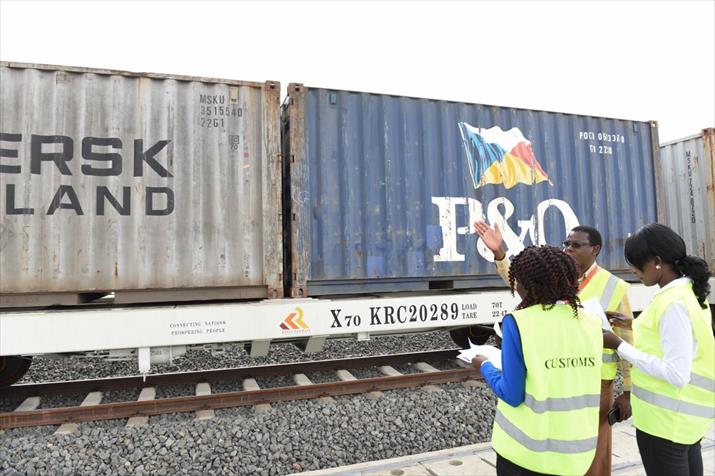|
||||||||||
| Home Nation World Business Opinion Lifestyle ChinAfrica Multimedia Columnists Documents Special Reports |
|
||||||||||
| Home Nation World Business Opinion Lifestyle ChinAfrica Multimedia Columnists Documents Special Reports |
| Opinion |
| China Ramps up Foreign Aid |
| On September 5, 2017, the news released by China's Ministry of Commerce drew the public's attention |
| By Lan Xinzhen | VOL.9 October 2017 ·2017-09-28 |

Yu Jianhua, Vice Minister of Commerce and Deputy International Trade Representative of China, signed agreements with representatives from the World Food Programme, the United Nations International Children's Emergency Fund and the International Committee of the Red Cross to offer aid to Afghanistan, Pakistan, Ethiopia, Zimbabwe, Cameroon and Somalia, which suffer a shortage of food. China's Ministry of Commerce is working around the clock to draw up a detailed aid plan to help these countries deal with the humanitarian crises.
According to Lan Xinzhen, ChinAfrica News Commentator, the signing of these agreements is a step to fully put into practice China's pledge of aid to the international community. His excerpted views follow:
On May 14, Chinese President Xi Jinping said in his speech at the opening ceremony of the Belt and Road Forum for International Cooperation that China would offer assistance worth 60 billion yuan ($9.15 billion) to developing countries and international organizations that get involved in the Belt and Road Initiative. The financial assistance will help promote economic development and improve local people's livelihood. According to Xi, China will provide the developing countries with emergency food aid worth 2 billion yuan ($305 million) and make a donation of $1 billion to the Assistance Fund for South-South Cooperation. A series of such foreign aid pledged by China have been warmly welcomed by related states and the international community.
More importantly, the world witnesses China's efforts to increase aid to the developing friends.
According to statistics released by the Chinese Government, since the Belt and Road Initiative was put forward in 2013, China has realized a remarkable growth in offering aid, which has surpassed the total amount from 2003 to 2013. Moreover, China's rapid aid growth is in strong contrast with the decline of developed countries over the past four years. The report by the Organization for Economic Cooperation and Development (OECD) on developed nations' aid to developing nations in 2015 shows that the official development assistance (ODA) from 28 developed economies accounted for 0.3 percent of their combined gross national income, much lower than 0.7 percent, the minimum requirement proposed by the United Nations.

The aid growth shows that China is willing to shoulder greater responsibility to make the world better.
In the 1950s, despite enormous economic hardship, China had managed to provide economic and technology assistance for other developing countries which had newly gained independence.
Today, China enhancing its foreign aid garners both praise and distortions from the global community. Some turn a blind eye to China's efforts and distort China's aid as a new branch of "neo-colonialism" in Africa and other regions. Some foreign media have made presumption concerning China's intention of offering aid groundlessly.
There are explicit clauses in the UN Charter on encouraging foreign aid. Developed countries should bear the responsibility to help the developing countries with poverty reduction and humanitarian rescue. The Development Assistance Committee under the OECD is also in charge of coordinating developed countries' assistance to developing countries. As the largest developing country and emerging economy, China is willing to provide aid for others in need of help.
Unlike some developed countries, China never attaches political conditions to its foreign aid. China sticks to the principle of equality and mutual benefit while emphasizing effect and efficiency of its aid. China always pursues common development with other states.
China fully respects recipient countries' rights to choose the model of development that fits their national conditions. The basic principles for China's foreign assistance are mutual respect, equal treatment and mutual benefit. Offering assistance with certain political purposes is nothing else but to coerce a country by taking advantage of its difficulties, which is totally repugnant.
The objective of China's foreign assistance is clear and simple: to help other countries with poverty relief and livelihood improvement. China's foreign assistance focuses on agricultural development, education, medical services improvement and public facility construction, as well as humanitarian aid targeting major natural disasters.
Currently, developing countries, particularly the least developed ones, are still burdened with the arduous task of poverty relief and development. The international community should encourage more international efforts to strengthen North-South dialogue and South-South cooperation, push forward economic and social development in developing countries and finally realize the goal of eliminating poverty around the globe.
Against this backdrop, as a major power in world affairs, China stands ready to promote common development and prosperity together with the rest of the world.
|
||||
| About Us | Contact Us | Advertise with Us | Subscribe |
| Copyright Beijing Review All rights reserved 京ICP备08005356号-5 京公网安备110102005860号 |